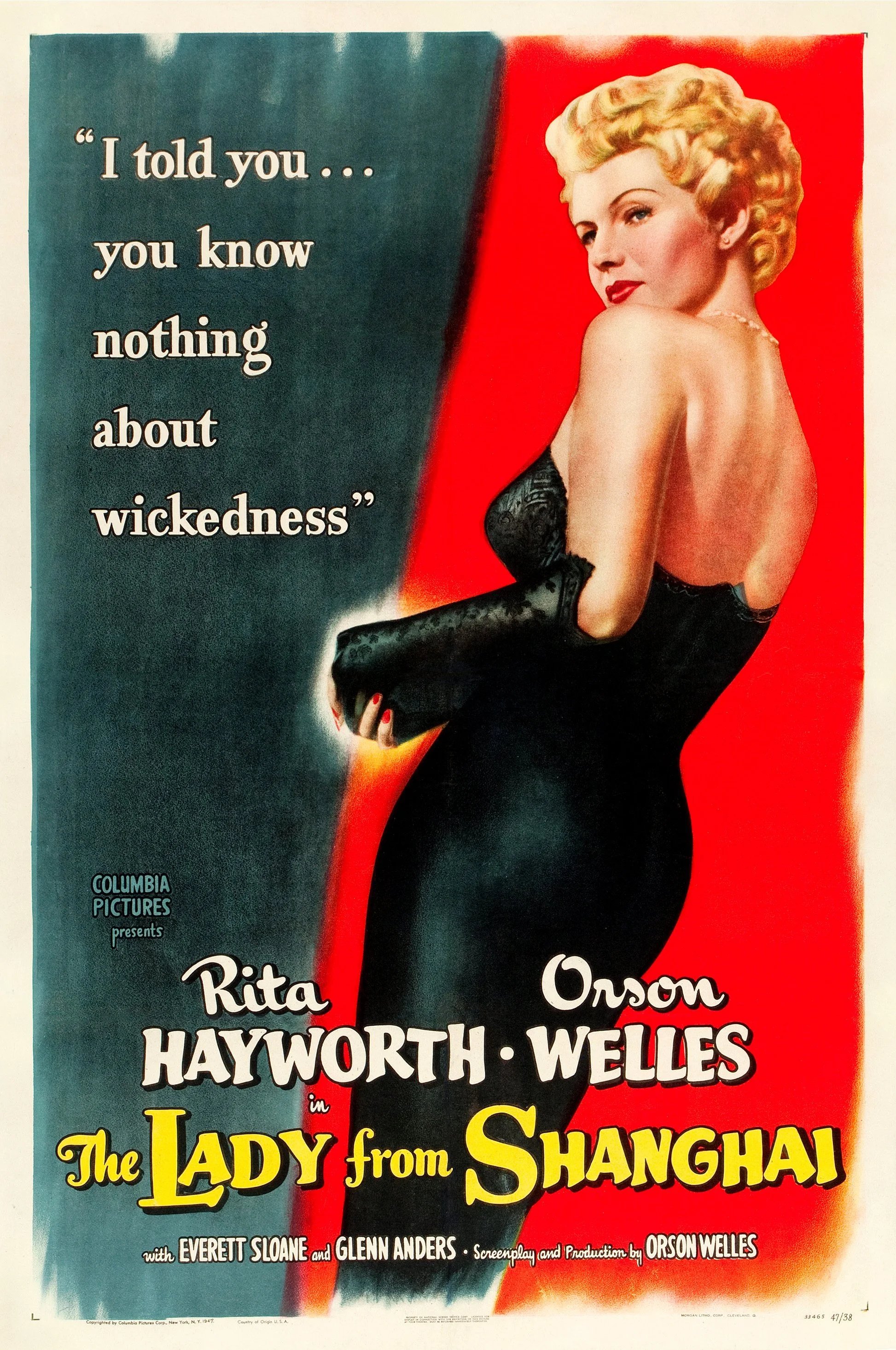Director: Orson Welles
Cast: Rita Hayworth, Orson Welles, Everett Slaone, Glenn Anders
Have I Seen it Before: Oh, sure.
Did I Like It: Certainly, Citizen Kane (1941) is the film for which Orson Welles is chiefly remembered, but I’ll be damned if this isn’t his best movie. Many of Welles films, theatrical productions and radio broadcasts are intellectual exercises. His name is made in displays of clever form. The stories themselves are incidental. Now, here he’s working with a very basic noir story: Rough and tumble boy more tough than smart meets girl who may very well be descended from sharks. Two or three dead bodies later, and everyone wishes they hadn’t met in the first place.
But this had to be one that Welles felt more than he thought about, and I mean that in the very best way possible. Produced as the marriage between Welles and Hayworth was coming to an end, that alone is worth the above assessment. So many screen pairings of famed Hollywood couples happen when the couple is just starting to fall in love. If what they feel at that moment is real (far from a guarantee), and if they can translate any of that igniting passion to on-screen chemistry (which hardly ever happens) then that display inevitably feels self-conscious on the part of the performers, even if that self-consciousness is only on the part of us as the audience. Seeing a film capturing an—even relatively amicable—end is fascinating and highly unusual**.
Beyond that, and in the best example of what noir tries to do, every piece of the film seems designed to keep the audience off balance, if not outright confuse them, culminating in the famed house-of-mirrors sequence at the film’s climax. Some have complained about that, but I contend its the film’s greatest strength. We’re not supposed to feel like things are adding up. Why else would Welles have had Hayworth chop off most of her hair and dye what remained blonde?
*Although there is at least an argument to be made that he is better known to future generations as the inspiration for Maurice LaMarche’s portrayal of The Brain… And even that reference may not be all that hip for the kids of today, which is a complete shame.
**The only other example I can readily think of would be Woody Allen’s Husbands and Wives (1992)… And there wasn’t anything amicable about that. Infinitely more fascinating on that front, but you probably ought not hold your breath for me writing a review on that film.

